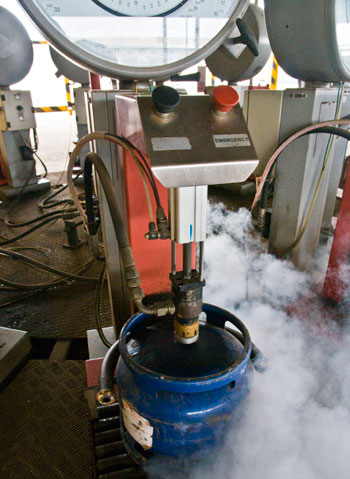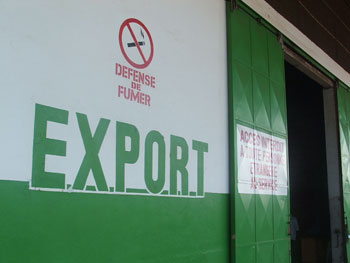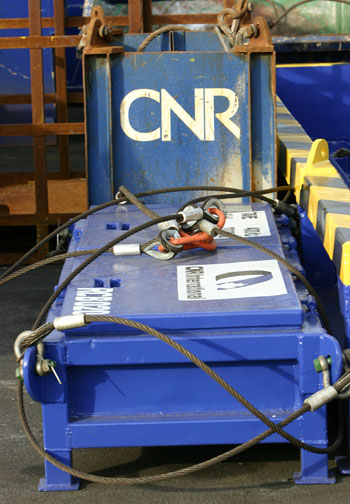Industry in Côte d’Ivoire
H.E. Moussa Dosso, Minister of Industry of Côte d’Ivoire
Minister of Industry explains the changes made to promote more investments in industry in Côte d’Ivoire and thus boost the industry and economy in Côte d’Ivoire. Côte d’Ivoire will finally become an emerging country by 2020 as stated by the President of Côte d’Ivoire, His Excellency Dr. Alassane D. Ouattara.
Interview with H.E. Moussa Dosso, Minister of Industry of Côte d’Ivoire

How do you approach the issue of taxation?
Taxation plays an important role in the promotion of investments. It ranks highly among the priority indicators to improve the Doing Business Program. Thanks to its provisions, the Investment Code gives large tax benefits and incentives to investors.
Would you consider a tax reduction for foreign companies in order to boost the investments?
The current Investment Code provides for a number of tax incentives, including:
• Tax exemption on industrial and commercial profits from patent contributions over a 5 to 8 year period, depending on the area of that particular project;
• Exemption from the contribution of land assets for investments greater than or equal to two billion CFA Francs.
However, in relation to Côte d’Ivoire’s economic recovery, the Investment Code is being revised to make the investment in Côte d’Ivoire even more attractive due to new provisions such as:
• VAT exemption on production equipment
• The grant of special amenities; this is the supply – at lower costs than market costs – of land, buildings, industrial plants and infrastructure such as telecommunications, transportation, the electricity and water supply
• The grant of services, which may include:
– Assistance in funding research, project implementation, and project management
– Conduct of pre-investment studies
– Commercial information
– Supply of raw materials and the provision of infrastructure
• Market preferences, including:
– Preferential public contracts
– Market foreclosure against the entry of other products
– Protection against competition in the field of imports in Côte d’Ivoire
• Preferential treatment for currencies, including:
– Special exchange rate
– Special rates for the conversion of foreign debt in capital share
– Elimination of exchange risk on foreign loans

How would you evaluate the industry in Côte d’Ivoire in 2011 and what is the outlook for the industry in 2012?
What are the areas of strategic development of industry in Côte d’Ivoire for 2012?
The heart of Côte d’Ivoire’s industry has been preserved; the roots were not affected. The negative effects caused by the crisis of 2010/2011 can be seen in losses in inputs, rolling stock, and goods. The 2012 outlook for businesses is good because of the exceptional work that has been completed since the crisis ended. This work includes the recently announced private investments, tax cuts (see fiscal appendix 2012), the reduction of barriers and red tape in order to promote trade and cross-border trade, and initiatives undertaken by the Ministry of Industry of Côte d’Ivoire.
The Ministry of Industry of Côte d’Ivoire is responsible for setting policies for the Côte d’Ivoire government, particularly in industrialization and in the promotion of the private sector in Côte d’Ivoire. The Ministry of Industry of Côte d’Ivoire has specific objectives: to improve the business environment, to increase the capacity of industry development and industry innovation, and to promote entrepreneurship at the national level. Thus, the Ministry of Industry of Côte d’Ivoire has listed its five strategic areas: good governance, job creation (particularly for youth), recovery of economic infrastructure and modernization of the transport system, support to the private sector, and the fight against poverty.
Could you describe the plan designed to boost economic growth, its specifics and its effects?
The plan is broken down according to the strategic areas mentioned above. The plan covers:
• Strengthening the dialogue between the government and private sector
• Restructuring and upgrading industrial enterprises (competitiveness)
• Promoting standardization and quality
• Promoting the establishment of transformation units
• Encouraging private initiative for self-employment and the integration of young people
• Supporting research funding for the private sector, particularly for the rehabilitation and construction of industry zones and parks.
As a result, we can expect that Côte d’Ivoire will have a more competitive economy and a stronger economic growth, which will result in greater wealth creation and thus a substantial reduction in poverty. Côte d’Ivoire will finally become an emerging country by 2020 as stated by the President of Côte d’Ivoire, His Excellency Dr. Alassane D. Ouattara.
How do you foresee the plan in practice?
Côte d’Ivoire will finally become an emerging country by 2020 as stated by the President of Côte d’Ivoire, His Excellency Dr. Alassane D. Ouattara.
In concrete terms, the following actions are planned for the short to medium term:
• Organization of regular meetings with the private sector through the Consultative Committee between the State and the private sector (CCESP)
• Revision of the Investment Code (currently in progress)
• Establishment of the Centre for creating enterprises (currently in progress)
• Reform of the implementation and management of industry land (currently in progress)
• Strengthening of the operational capacities of the Ministry of Industry of Côte d’Ivoire (in progress)
• Setting up of a framework for a new industrial policy (TDR developed in collaboration with the MEF, Convention signed with UNIDO)
• Support of the establishment of a Court of Commerce (in collaboration with the Ministry of Justice of Côte d’Ivoire, in progress)
• Rehabilitation, expansion, and creation of industry zones (ongoing studies)
• Support of the production of appropriate technologies
• Establishment of infrastructures of quality performance (laboratories)
What are the particular advantages for a company which is to be established in Côte d’Ivoire?

– The country has a business environment that is more favorable for the following reasons:
• The return to political stability
• The Investment Code, which is currently being reviewed to highlight the attractiveness of investing in Côte d’Ivoire
• The creation of a center to help companies that will allow investors to start a business in less than 72 hours (currently in progress)
• The creation of a Court of Commerce (in progress)
• The existence of a committee to take care of consultations between the State and the private sector, which aims to strengthen dialogue between the two entities
• The principle of freedom to invest
• The possibility of dispute/conflict resolution
• The guarantee of non-discrimination
• The free repatriation of capital
– Availability of economic infrastructures and raw agricultural materials
• An international airport
• Two independent ports (Abidjan and San Pedro)
• A high-performing telephone network
• Over 1,000 kilometers of bitumized roads
• The availability of raw agricultural materials (Côte d’Ivoire is the first producer of internationally sold cocoa beans)
In what markets can the Côte d’Ivoire industry be competitive in the export?
Côte d’Ivoire industry products are competitive in the sub-region, especially in the UEMOA market (covering more than 70 million inhabitants) and the broader ECOWAS (covering nearly 300 million inhabitants). Indeed, many of the Côte d’Ivoire industry products sell very well in this large market of West Africa for two main reasons:
1. Firstly, the products sell well because of the good quality products marketed by our manufacturers. Now more than ever, the issue of quality remains a key factor in the success of the products, and the government (through the Ministry of Industry of Côte d’Ivoire) has made this issue a battle cry to allow Côte d’Ivoire products to be competitive both nationally and internationally. In recent years, the government has implemented various programs to support the quality approach in Côte d’Ivoire companies, which were completed by the institution of the Ivorian Price (Prix Ivoirien) of quality.
Our efforts were supported by the UEMOA Commission, which has implemented a quality program that has benefited the country.
2. The second reason lies in the arrangements established within the UEMOA and ECOWAS to facilitate trade between Member States: the Preferential Community Tax (la Taxe Préférentielle Communautaire) of UEMOA and the Liberalization of Exchanges Scheme (le Schéma de Libéralisation des Echanges) of ECOWAS. These two arrangements provide a competitive advantage for Côte d’Ivoire products because they allow tariff free entry of Côte d’Ivoire products into the sub-regional markets. 
Thanks to these advantages, the Côte d’Ivoire industry products are competitive in the markets of West Africa.
But beyond the West African market, Côte d’Ivoire industry products are also generally competitive in foreign markets. The competitiveness can be seen in certain exports, such as those derived from the processing of cocoa (cocoa butter, cocoa mass, etc.) to the European, American, Asian, etc. markets.
This is the place to note that the Côte d’Ivoire Government’s ambition is to increase exports by diversifying markets and products; the aim is to export more of processed products (semi-finished and finished products) than of raw materials.
To achieve this goal, the government has implemented various programs with the support of development partners to strengthen the competitiveness of Côte d’Ivoire products. This is the case of:
• Program of Aid for Trade and Regional Integration (PACIR), one of whose components is the project “Improvement of the competitiveness of non-traditional export sectors”
• Program of restructuring and upgrading of enterprises initiated by the UEMOA Commission for the benefit of companies of Member States of the Union
It should be noted that the Ministry of Industry is working on the implementation of a national program that is larger than the pilot program of the UEMOA; it is a program of restructuration and upgrade, with technical support from UNIDO (ONUDI) in order to improve the competitiveness of general enterprises and of industry in Côte d’Ivoire in particular.
Overall, it should be noted that the government has made the issue of competitiveness a major challenge. Therefore, the government will start, with support from the World Bank, a study on the overall competitiveness of Côte d’Ivoire’s economy.
The completion of this study will identify actions and strategies to be implemented in order to increase the performance of the Côte d’Ivoire industry – particularly, the export of manufactured goods into the international market.
In terms of the Côte d’Ivoire image, what is the perception of Côte d’Ivoire industry exports into foreign markets?
Surviving the post-electoral crisis, Côte d’Ivoire needs to improve its image vis-à-vis the outside world. Indeed, this picture has been somewhat abraded during these difficult times.
As for Côte d’Ivoire’s industry products, they are well appreciated in foreign markets; there is a satisfying external demand for Côte d’Ivoire products.
However, much remains to be done in order to improve the image of Côte d’Ivoire products in the outside world, especially after the post-electoral crisis. The government is aware of the current situation and the government’s efforts include:
– Enlarging the capacities of the commercial delegates of Côte d’Ivoire abroad and of economic operators (manufacturers) in the field of trade promotion
– Developing a new business strategy for the country
– Developing active diplomacy oriented towards further promotion of Côte d’Ivoire products and of the Côte d’Ivoire image abroad
These actions should help improve the image of the country and re-position products produced in Côte d’Ivoire to foreign markets.
Picture credit: Abidjan.net